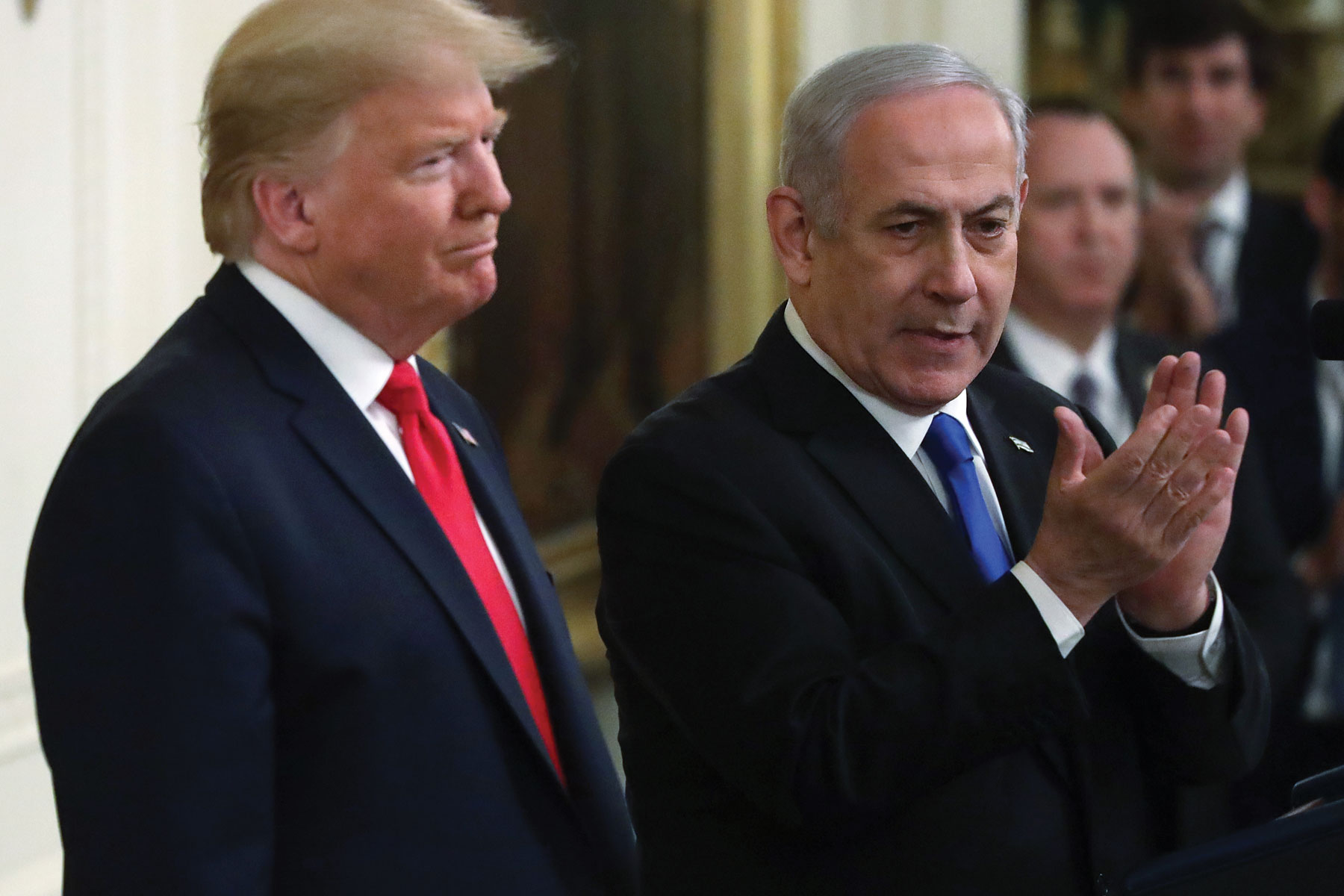 Former President Donald Trump and Israeli Prime Minister Benjamin Netanyahu.
Photo by Alex Wong/Getty Images
Former President Donald Trump and Israeli Prime Minister Benjamin Netanyahu.
Photo by Alex Wong/Getty Images On Jan. 28, President Donald Trump stood alongside Israeli Prime Minister Benjamin Netanyahu at the White House and unveiled the “deal of the century” peace plan, whose primary architect is Jared Kushner, Trump’s senior adviser and son-in-law.
Around the world many prominent Jewish individuals and organizations either cheered or condemned the plan. And when the Journal spoke with three prominent local leaders by telephone, their opinions also were divided.
Consul General of Israel in Los Angeles Hillel Newman said the deal “tries to trigger a new situation by bringing in realism.” He said that the Palestinians had “inflated expectations in the past,” when they previously held out false hope for the possibility of one state and the right of Palestinian refugees to return to lands they lost in 1948. As a result, Newman said, “these were an obstacle to peace because they made the Palestinians climb up ladders they were not prepared to come down from, and received full support from the international community at the time.
“Therefore, there was no place for compromise, no place for realism in coming to peace.”
Israel, however, did make “a tremendous compromise,” he added, because the plan was the first proposed peace agreement that actually included a map of what a Palestinian state would look like, and “Israel never wanted to present a map.”
“The strategy of refusal in the Middle East is not a productive strategy and that is why you see the Arab states being less categorical. ” — Rabbi David Wolpe
Rather, he said, Israel wanted the Palestinians to first recognize Israel’s right to exist.
IKAR’s Rabbi Sharon Brous denounced the proposal, calling it “unfair, unbalanced, unrealistic and very cynically and very clearly politically motivated, timed to come out right before the election, both there [in Israel] and here [in the U.S.].”
She added, “Obviously when an impeached president and an indicted prime minister come together to make a major announcement about the ‘deal of the century, it’s very clear this is about gaining both of them political credibility at a time they both desperately need that.”
Brous also castigated the plan for being “unilateral. It does not consider the needs or the concerns of the Palestinian people. It’s astonishing to think of an Israeli-Palestinian peace plan that the Palestinians are not involved in crafting.”
Whereas the Barack Obama administration called on Israel to return close to pre-1967 borders (with land swaps), the Trump plan gives Israel the right to annex the Jordan Valley and its West Bank settlements, which could jeopardize the country’s longstanding peace agreement with Jordan, Brous said. Doing so, she explained, would “create a system of eternal occupation, which is the ultimate obstacle to peace and will not only keep Palestinians from liberation but undermine the Palestinian dream and keep Israelis from liberation.”
Sinai Temple Rabbi David Wolpe said the Palestinians’ immediate dismissal of the plan was consistent with their past behavior, including the Palestinian Authority’s rejection of then-Prime Minister Ehud Olmert’s 2008 offer to withdraw from the West Bank and relinquish control over Jerusalem.
“The reality is it will probably not change things because I do not see the Palestinians tragically accepting it as even a possibility for negotiation,” Wolpe said. He added he used the word ‘tragically’ “because I think every time they have refused a proposal or lost a war it has ended up to their detriment.”
Wolpe also spoke about the reaction, or lack thereof, to the deal from the Arab world.
“The strategy of refusal in the Middle East is not a productive strategy and that is why you see the Arab states being less categorical, because they know that,” he said. n























 More news and opinions than at a Shabbat dinner, right in your inbox.
More news and opinions than at a Shabbat dinner, right in your inbox.